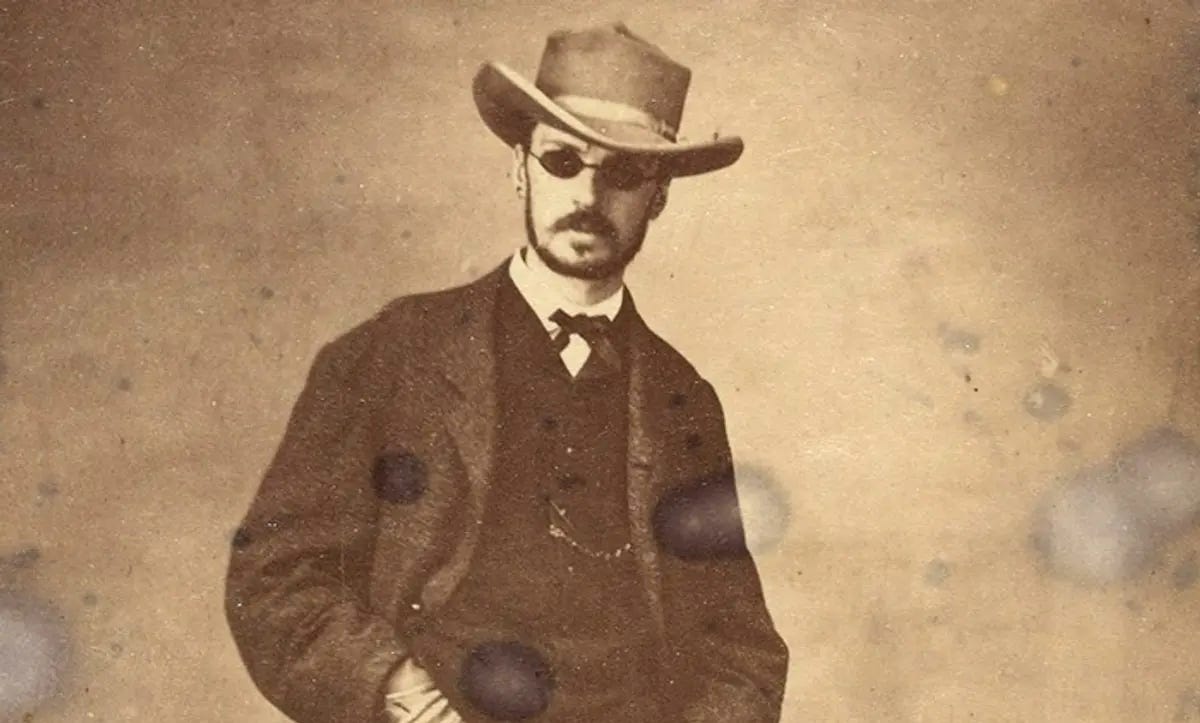American weirdos
Vitalist strands of thought and culture in the early 20th century: Session 6 of the seminar.
Jackson Lears is a chronicler of the “off-modern” in American history. Not quite anti-modern, the off-modern is “that sideways escape from the deterministic narratives… that too often present themselves as simple common sense,” as Lears’ former student Charlie Riggs put in his Introduction to a recent volume of his teacher’s essays. Even as he has “remained ever alert to the pitfalls of nostalgia and reaction,” Lears brings critical sympathy to his studies of the various cranks, movements and enthusiasms that populate the unofficial precincts of American history – the idiosyncratic perspectives of those who are dubious about our legitimating stories. Lears is drawn to people who use their “peripheral situation to show the eccentricity of the center,” as Riggs aptly put it.
Lears is thus an ideal guide to acquaint us with the various strands of vitalism in American history, as he has done in his 2023 book Animal Spirits. Vitalism qualifies as an off-modern phenomena in two respects. Politically, it is a response to the asphyxiation of life by managerialism. Metaphysically, it is a response to determinism and an overly mechanical picture of the universe. In this double movement joining the political and metaphysical, I find the vitalist tradition germane to the needs of the present.
Politically, we live in a time marked by the ever-closer supervision of life, whether in the punitive/moralistic mode of an HR department or through comprehensive surveillance of our patterns of life in the digital economy. Metaphysically, the reduction of the human being to a collection of synapses and neurotransmitters to be managed through pharmacology belittles man by subsuming him to a realm of dumb material causation. It is then entirely logical and consistent that our captains of industry are busy replacing human beings with AI substitutes, as this is merely a matter of swapping carbon for silicon. The forms of political economy imposed upon us by Big Tech, and the forms of self-understanding encouraged by Big Pharma, rest on metaphysical posits that are mostly tacit and unexamined. If we can make them explicit, we can assess them and maybe even find our way toward a metaphysical picture that is both more true and more supportive of human excellence. This challenge is not a new one, and in today’s seminar we will take a glance at vitalist currents that were flowing in America about a century ago.
The history of vitalism in America also provides us with cautionary episodes, equally applicable to the present. It is a dispensation that easily gives itself over to militarism and imperial adventure. It also gets coopted into the progressive-destructive project of unbridled capitalism (think Ayn Rand). Despite these pitfalls, vitalism provides resources for thinking about some basic human needs that get short shrift in modern society in its relentless drive to create “men without chests,” to borrow the title of CS Lewis’ timeless essay.
In any case, animal spirits have reappeared in public life with the irruption of Donald Trump and Elon Musk onto the main stage. If we can understand the appeal of these figures, we will have gone a good way toward understanding some persistent, subterranean energies in American life.
Let’s dive in.
Keep reading with a 7-day free trial
Subscribe to Archedelia to keep reading this post and get 7 days of free access to the full post archives.




